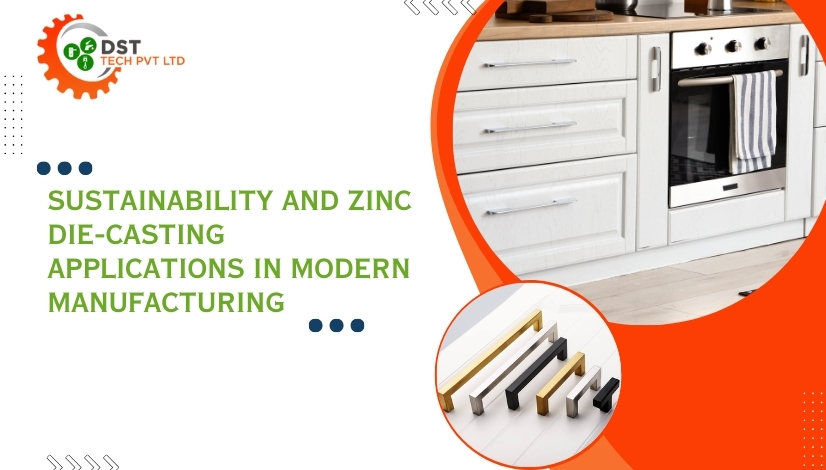In today’s industrial landscape, sustainability has become a critical focus, driving manufacturers to adopt eco-friendly processes and materials. Zinc die-casting, a widely used manufacturing technique, is gaining attention not only for its ability to produce high-quality, durable components but also for its potential to support sustainable practices. By leveraging Zinc die-casting, industries can achieve environmental goals without compromising on quality or efficiency. Let’s explore how sustainable Die-casting practices benefit various industries and why they are essential for the future of modern manufacturing.
1. Environmentally Friendly Materials
Zinc is a highly sustainable material because it is 100% recyclable without loss of properties. In die-casting, Zinc can be reused multiple times, reducing the need for raw materials. This minimizes the depletion of natural resources and reduces waste. Additionally, recycling zinc requires less energy than the extraction and processing of new materials, resulting in lower carbon emissions and a reduced environmental footprint.
2. Energy Efficiency in Production
One of the standout features of Zinc is its relatively low melting point, which contributes to lower energy consumption during the manufacturing process. This makes Zinc an energy-efficient option compared to other metals, such as aluminum or steel, which require higher temperatures to melt and cast. The energy-saving aspect of die-casting makes it a preferred choice for industries looking to reduce their overall energy usage and improve their sustainability profile.
3. Minimizing Waste and Improving Efficiency
Zinc die-casting is known for its ability to produce near-net-shape parts, meaning the components come out of the mold with minimal need for additional machining or finishing. This reduces waste from excess material removal, as well as the time and energy required for post-production processes. Manufacturers can achieve greater efficiency by optimizing their use of resources, leading to cost savings and less material wastage.
4. Durable and Long-Lasting Components
Sustainability is not only about reducing energy consumption and waste—it’s also about producing durable products that have a longer lifespan. Zinc die-casting produces components with excellent strength, corrosion resistance, and durability. This ensures that the final products, whether used in sanitary ware, automotive parts, or architectural hardware, have an extended service life, reducing the need for frequent replacements and further contributing to sustainability.
5. Sustainable Applications Across Industries
Sustainable Zinc die-casting practices have wide applications across various industries, including:
- Sanitary/Bathware: Zinc die-casting is ideal for producing robust, corrosion-resistant components like faucet handles, urinal face plates, and actuators that withstand the harsh environments of bathrooms.
- Automotive Parts: The automotive industry relies on Zinc die-casting for parts like petrol tank caps and door handles, which demand high precision and durability. The sustainable nature of Zinc die-casting helps the automotive sector achieve both quality and eco-consciousness.
- Architectural & Kitchen Hardware: Door handles, knobs, and other architectural hardware benefit from Zinc die-castings ability to produce intricate designs with strength and longevity, ensuring long-lasting fixtures for homes and commercial spaces.
Conclusion: Why DST Tech Leads the Way in Sustainable Zinc Die-Casting
As a leader in Zinc die-casting, DST Tech is committed to sustainability while delivering high-quality components across various sectors, including Sanitary/Bathware, Automotive Parts, and Architectural & Kitchen Hardware. By adopting sustainable Zinc die-casting practices, DST Tech helps industries reduce their environmental impact while providing reliable, precision-engineered solutions. Partner with DST Tech today for your Zinc die-casting needs and contribute to a more sustainable future. Contact us to learn how our expertise can help you achieve both quality and sustainability in your manufacturing projects.

